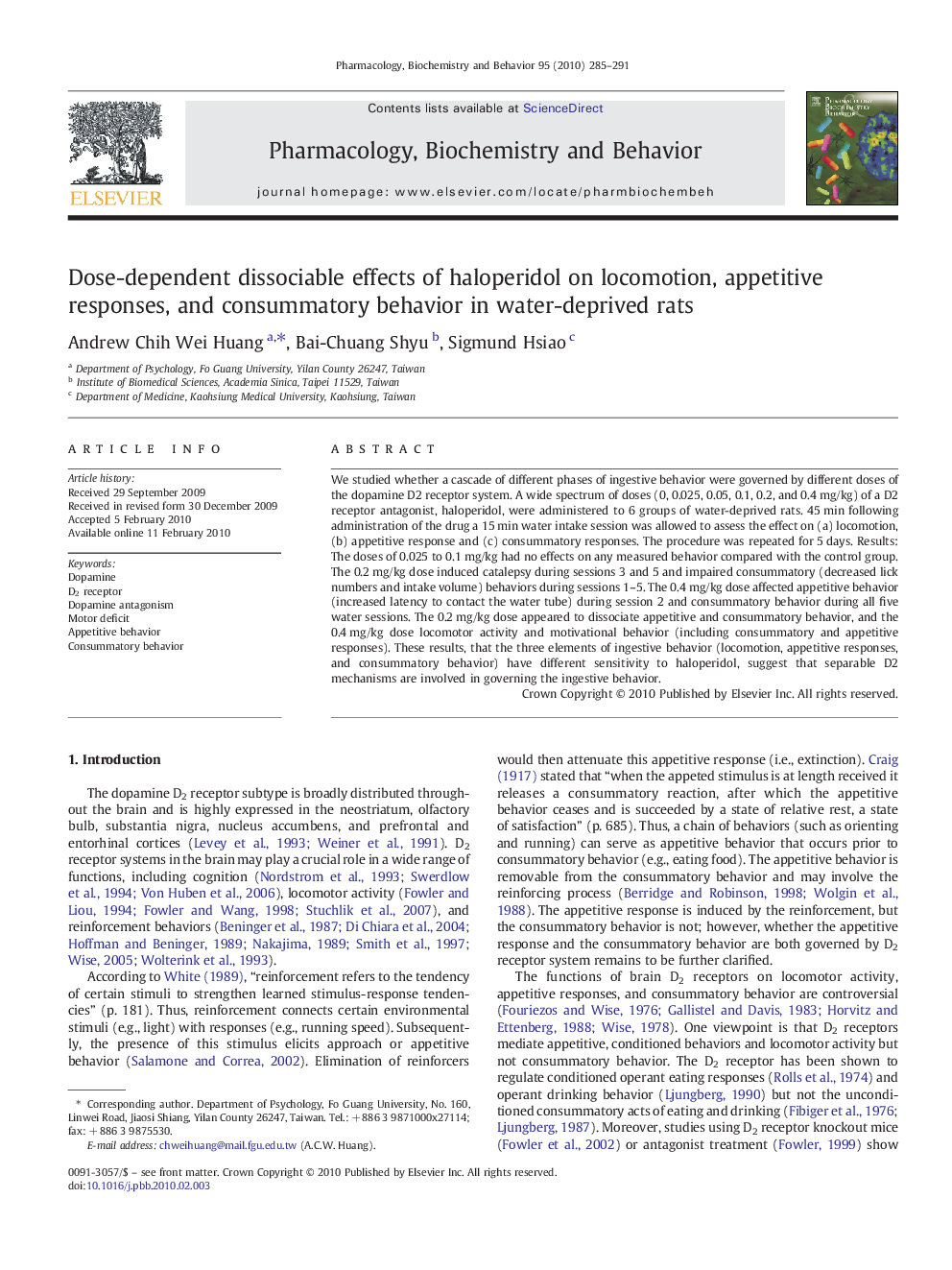| Article ID | Journal | Published Year | Pages | File Type |
|---|---|---|---|---|
| 2013509 | Pharmacology Biochemistry and Behavior | 2010 | 7 Pages |
Abstract
We studied whether a cascade of different phases of ingestive behavior were governed by different doses of the dopamine D2 receptor system. A wide spectrum of doses (0, 0.025, 0.05, 0.1, 0.2, and 0.4Â mg/kg) of a D2 receptor antagonist, haloperidol, were administered to 6 groups of water-deprived rats. 45Â min following administration of the drug a 15Â min water intake session was allowed to assess the effect on (a) locomotion, (b) appetitive response and (c) consummatory responses. The procedure was repeated for 5Â days. Results: The doses of 0.025 to 0.1Â mg/kg had no effects on any measured behavior compared with the control group. The 0.2Â mg/kg dose induced catalepsy during sessions 3 and 5 and impaired consummatory (decreased lick numbers and intake volume) behaviors during sessions 1-5. The 0.4Â mg/kg dose affected appetitive behavior (increased latency to contact the water tube) during session 2 and consummatory behavior during all five water sessions. The 0.2Â mg/kg dose appeared to dissociate appetitive and consummatory behavior, and the 0.4Â mg/kg dose locomotor activity and motivational behavior (including consummatory and appetitive responses). These results, that the three elements of ingestive behavior (locomotion, appetitive responses, and consummatory behavior) have different sensitivity to haloperidol, suggest that separable D2 mechanisms are involved in governing the ingestive behavior.
Related Topics
Life Sciences
Biochemistry, Genetics and Molecular Biology
Biochemistry
Authors
Andrew Chih Wei Huang, Bai-Chuang Shyu, Sigmund Hsiao,
